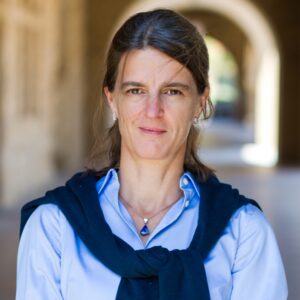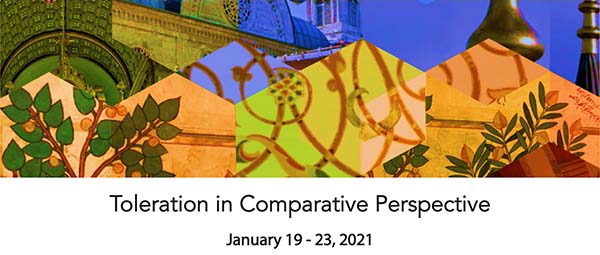PAPER TITLE TBA
Panel: Sacred Space and Tolerance – Thursday, January 21 (11am – 1pm PST // 2pm – 4pm EST)

Charlotte Fonrobert is Professor of Religious Studies and, by courtesy, German and Classics at Stanford University. She has written on Jewish and Christian interpretations of Biblical gender and works on Rabbinics more broadly. She is working on a project that focuses on neighborhoods and the Jewish diaspora. She lays out some of this argument in her article, “Diaspora Cartography: On the Rabbinic Background of Contemporary Ritual Eruv Practice.” She focuses on the practice of the eruv in Jewish neighborhoods and communities. This boundary designation allows Jews to move freely in public during shabbos, but it also functions to mark out space. Fonrobert shows that early Rabbinic commentary on this practice illustrates how it has consistently been understood to mark space that is shared with other neighbors and with non-Jewish jurisdictions. That renders the eruv a practice with a long history in the diaspora, defined by the expectation that space is shared and overlaps with other neighbors.
Fonrobert has also written for more general academic audiences about the study of rabbinics and contemporary understandings of Jewish diaspora and “assimilation.” She argues that the study of Jewish thought from late antiquity on illustrates how literary and intellectual production must always be studied within its wider context, including that outside of Judaism and the Jewish experience.
